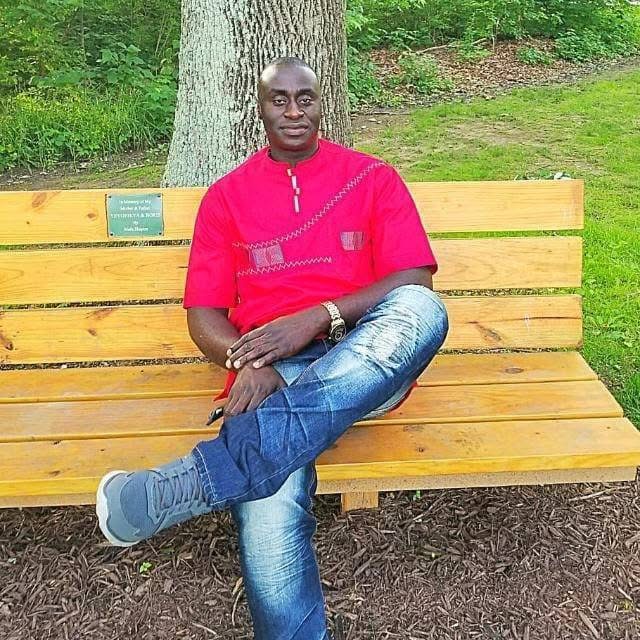On The Ingoing 3rd Term Debate- Zakaria Kemo Konteh

Zakaria Kemo Konteh, Gambian living in the USA
By Zakaria Kemo Konteh
It is no brainer that President Barrow’s pronouncement to run for a third term has generated quite a national debate. From a legal or constitutional perspective, nothing stops Barrow from seeking another electoral mandate. But this is beyond the constitutional argument; it is about safeguarding our nascent democracy especially after our collective traumatic experience under Yahya Jammeh. It is about ensuring that no president shall lord over Gambians for more than 10 years no matter the justification and Barrow has none!
There is no evidence to suggest that President Barrow is blatantly violating the rights of the people or that he is killing Gambians with impunity as were the case under the APRC government. However, in kicking Yahya Jammeh out, we were not merely looking for or content with an end to his brutalities. We wanted wholesale pulverization of the very decadent system that enabled the despot. We yearned for something more durable to sustain democracy and foster prosperity for the Gambian people. Barrow’s drive for self-perpetuation, after 10 years in power, has the potential to irreversibly roll back even the slightest gain achieved in governance and democracy since 2016 and everything else Gambians honorably and gallantly fought for.
We are witnessing steady but apparent politicization of vital national institutions, dealing with weakened policies and programs to combat corruption, experiencing terrifying proliferation of dangerous substances in our country, infiltration of armed robbers terrorizing businesses, suffering from degrading, uncoordinated and unstreamlined medical and healthcare services, redundant and highly bureaucratic civil service, demoralized armed and security services, hopelessly high rate of unemployment and an unforgiving surge of cost of living. Raw Poverty seen on the faces of our fellow citizens along with their daily struggle just to survive in that tiny country is emotionally overwhelming.
Yes, Gambians are free from the clutches of a murderous tyrant yet they are not any safer and prosperous than they were 8 years ago! If President Barrow had any modicum of desire to relinquish power after two terms, he would have done more or better to put Gambia on tangible economic, democratic and governance trajectory. The available evidence says otherwise.
But the President’s desire to rule Gambia perpetually is almost indistinguishable from that of those who aspire to replace him. Judging by the internal party structures of the current field of opposition political parties, it is hard to see how they approach governance differently – especially on the critical question of term limit – when they are being led by the same leadership/ personalies since their founding.
Just recently, PPP made national headlines when the internal party squabbling spilled out onto to the public space because Kebba Jallow refused to give way to the newly elected leadership of the party. PDOIS is still firmly in the hands of Hon Halifa Sallah in spite of numerous electoral defeats in presidential contests . Hamat Bah heads NRP even when the party is unofficially absorbed by the NPP. Hon Lawyer Darboe continues to lead UDP even after a particularly striking record of electoral defeats and an undeniable bleak prospect . CA, headed by Dr Ismaila Ceesay had to postpone its previously scheduled congress when allies and political operatives witthin CA suspected serious challenge to Dr. Ceesay’s grip on the party.
Common sense dictates that it would be hard for opposition parties to demand something of Barrow and NPP what they are not willing to do within themselves. Thus, for political parties to make coherent, united case against Barrow and to be the deafening voice of the frustrated electorates, they have to demonstrate – in words and in action – clearly discernible approach to governance, completely different from the ruling party. Because, to some of us, internal party structures of these political parties reflect their governance philosophy. If they are unwilling to realign themselves internally with the kind of government they profess, how can we trust them to be any different from PPP, APRC and NPP?

